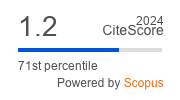Why Desist Hyphenated Identities? Reading Syed Amanuddin's Don't Call Me Indo-Anglian
DOI:
https://doi.org/10.29038/eejpl.2018.5.2.shaKeywords:
hyphenated identity, hybridity, culture, English, Indo-Anglian, Syed Amanuddin.Abstract
The paper analyses Syed Amanuddin’s “Don’t Call Me Indo-Anglian” from the perspective of a cultural materialist. In an effort to understand Amanuddin’s contempt for the term, the matrix of identity, language and cultural ideology has been explored. The politics of the representation of the self and the other that creates a chasm among human beings has also been discussed. The impact of the British colonialism on the language and psyche of people has been taken into account. This is best visible in the seemingly innocent introduction of English in India as medium of instruction which has subsequently brought in a new kind of sensibility and culture unknown hitherto in India. Indians experienced them in the form of snobbery, racism, highbrow and religious bigotry. P C Ray and M K Gandhi resisted the introduction of English as the medium of instruction. However, a new class of Indo-Anglians has emerged after independence which is not different from the Anglo-Indians in their attitude towards India. The question of identity has become important for an Indian irrespective of the spatial or time location of a person.
References
- Abel, E. (1988). The Anglo-Indian Community: Survival in India. Delhi: Chanakya.
- Atharva Veda. Retrieved from: http://vedpuran.files.wordpress.com/2011/10/atharva-2.pdf
- Bethencourt, F. (2013). Racisms: From the Crusades to the Twentieth Century. Princeton: Princeton UP.
- Bhagvadgita:The Song of God. Retrieved from: www.holy-bhagavad-gita.org
- Constitution of India [The]. (2007). New Delhi: Ministry of Law and Justice, Govt of India, 2007, Retrieved from: www.lawmin.nic.in/coi/coiason29july08.pdf.
- Cousins, J. H. (1918). The Renaissance in India. Madras: Madras: Ganesh & Co., n. d., Preface is dated June 1918, Retrieved from: https://archive.org/details/in.ernet.dli.2015.203914
- Daruwalla, K. (2004). The Decolonised Muse: A Personal Statement. Retrieved from: https://www.poetryinternationalweb.net/pi/site/cou_article/item/2693/The-Decolonised-Muse/en
- Gale, T. (n.d.) Christian Impact on India, History of. Encyclopedia of India. Encyclopedia.com. Retrieved from: https://www.encyclopedia.com.
- Gandhi M K. (1938). My Own Experience. Harijan, Retrieved from: www.mkgandhi.org/ indiadreams/chap44.htm
- ---. “Medium of Education”. The Selected Works of Gandhi, Vol. 5, Retrieved from: www.mkgandhi.org/edugandhi/education.htm
- Gist, N. P., Wright, R. D. (1973). Marginality and Identity: Anglo-Indians as a Racially-Mixed Minority in India. Leiden: Brill.
- Godard, B. (1993). Marlene NourbeSe Philip’s Hyphenated Tongue or, Writing the Caribbean Demotic between Africa and Arctic. In Major Minorities: English Literatures in Transit, (pp. 151-175) Raoul Granquist (ed). Amsterdam, Rodopi.
- Gokak, V K. (n.d.). English in India: Its Present and Future. Bombay et al: Asia Publishing House. Retrieved from https://archive.org/details/in.ernet.dli.2015.460832.
- Gopika, I S. (2018). Rise of the Indo-Anglians in Kerala. The New Indian Express. Retrieved from www.newindianexpress.com/cities/kochi/2018/feb/16/rise-of-the-indo-anglians-in-kerala-1774446.html
- Hall, S. (1996). Who Needs ‘Identity’? In Questions of Cultural Identity, (pp. 1-17). Stuart Hall and Paul du Gay (eds.). London: Sage.
- Lobo, A. (1996a). Anglo-Indian Schools and Anglo-Indian Educational Disadvantage. Part 1. International Journal of Anglo-Indian Studies, 1(1), 13-30. Retrieved from www.international-journal-of-anglo-indian-studies.org
- ---. (1996b). Anglo-Indian Schools and Anglo-Indian Educational Disadvantage. Part 2. International Journal of Anglo-Indian Studies. 1(2), 13-34. Retrieved from: www.international-journal-of-anglo-indian-studies.org
- Maha Upanishad. Retrieved from: http://www.gayathrimanthra.com/contents/documents/ Vedicrelated/Maha_Upanishad
- Montaut, A. (2010). English in India. In Problematizing Language Studies, Cultural, Theoretical and Applied Perspectives: Essays in Honour of Rama Kant Agnihotri. (pp. 83-116.) S. I. Hasnain and S. Chaudhary (eds). Delhi: Akar Books. Retrieved from: https://halshs.archives-ouvertes.fr/halshs-00549309/document
- Naik, M K. (1973). Indian Poetry in English. Indian Literature. 16(3/4) 157-164. Retrieved from: www.jstor.org/stable/24157227
- Pai, S. (2018). Indo-Anglians: The newest and fastest-growing caste in India. Retrieved from: https://scroll.in/magazine/867130/indo-anglians-the-newest-and-fastest-growing-caste-in-india
- Pearson, M. N. (1987). The Portuguese in India. Cambridge: Cambridge UP.
- Rai, S. (2012). India’s New ‘English Only’ Generation. Retrieved from: https://india.blogs.nytimes.com/2012/06/01/indias-new-english-only-generation/
- Ray, P. C. (1932). Life and Experiences of a Bengali Chemist. Calcutta: Chuckervertty, Chatterjee & London: Kegan Paul, Trench, Trubner. Retrieved from: https://archive.org/details/ in.ernet.dli.2015.90919
- Rig Veda. Retrieved from: http://www.sanskritweb.net/rigveda/rv09-044.pdf.
- Rocha, E. (2010). Racism in Novels: A Comparative Study of Brazilian and South American Cultural History. Newcastle upon Tyne: Cambridge Scholars Publishing.
- Rushdie, S., West, E. (Eds.) (1997). The Vintage Book of Indian Writing 1947 – 1997. London: Vintage.
- Sen, S. (2010). Education of the Anglo-Indian Community. Gender and Generation: A Study on the Pattern of Responses of Two Generations of Anglo-Indian Women Living During and After 1970s in Kolkata, Unpublished Ph D dissertation. Kolkata: Jadavpur University. Retrieved from: http://shodhganga.inflibnet.ac.in/bitstream/10603/176756/8/08_chapter% 203.pdf
- Stephens, H. M. (1897). The Rulers of India, Albuqurque. Ed. William Wilson Hunter. Oxford: Clarendon Press. Retrieved from https://archive.org/details/in.ernet.dli.2015.156532
- Subramaniam, A. (2017). Speaking of Ramanujan. Retrieved from: https://indianexpress.com/ article/lifestyle/books/speaking-of-ramanujan-guillermo-rodriguez-when-mirrors-are-windows-4772031/
- Trevelyan, G. O. (1876). The Life and Letters of Lord Macaulay. London: Longmans, Geeen, & Co. Retrieved from: https://archive.org/details/lifelettersoflor01trevuoft
- Williams, B. R. (2002). Anglo-Indians: Vanishing Remnants of a Bygone Era: Anglo-Indians in India, North America and the UK in 2000. Calcutta: Tiljallah Relief.
- Yajurveda. Retrieved from: http://vedpuran.files.wordpress.com/2011/10/yajurved.pdf
- Yule, H., Burnell A. C. (1903). Hobson-Jobson: A Glossary of Colloquial Anglo-Indian Words and Phrases, and of Kindred Terms, Etymological, Historical, Geographical and Discursive. Ed. William Crooke. London: J. Murray. Retrieved from: https://archive.org/ details/hobsonjobsonagl00croogoog











 Creative Commons «Attribution» 4.0
Creative Commons «Attribution» 4.0